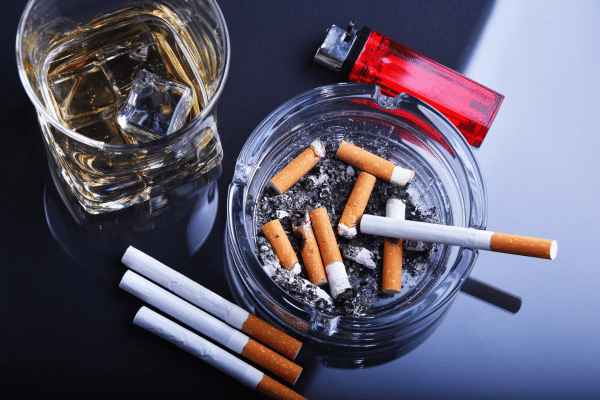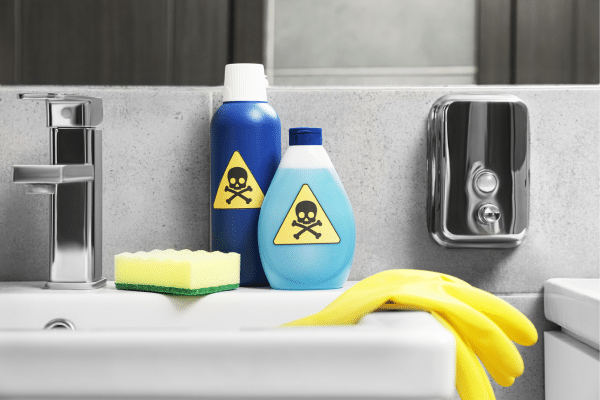Cancer remains a paramount health concern worldwide, with its prevalence growing particularly concerning as individuals age. As the body matures, cellular processes can sometimes go awry, leading to a greater risk of malignant growths. The emphasis on cancer prevention has never been more crucial, given the rising incidence rates. By understanding and implementing specific lifestyle changes and practices, individuals can significantly mitigate their risk. This article delves into several evidence-based prevention methods, starting with dietary habits, sun exposure, and the critical role of regular screenings.
Contents
Eat A Healthy Diet

Diet plays a quintessential role in either promoting or curtailing one’s risk of developing cancer. Foods rich in antioxidants, fibers, and essential nutrients have shown to actively deter the onset of specific cancers. For instance, leafy greens, berries, and nuts possess compounds that combat oxidative stress, a major contributor to cancer initiation. On the other hand, frequent consumption of processed meats, foods high in sugars, and those loaded with artificial additives can amplify cancer risks.
To navigate the complexities of nutrition, individuals should prioritize whole foods over processed ones. Emphasizing fresh fruits, vegetables, lean proteins, and whole grains can pave the way for a health-promoting diet. Limiting intake of red meat, avoiding charred foods, and moderating salt and sugar consumption can further bolster one’s defenses against cancer. Notably, the balance of what one includes and excludes from their meals can be a significant determinant of their overall health trajectory.
Avoid Exposure To The Sun

The sun, while being a vital source of vitamin D, can be a double-edged sword when it comes to skin health. Prolonged and unprotected exposure to its ultraviolet (UV) rays can lead to mutations in skin cells, increasing the risk of skin cancers, including melanoma. These UV rays damage the DNA in skin cells, which, over time, can accumulate and lead to malignant growths.
Protecting oneself from excessive sun exposure is paramount. This protection doesn’t mean shunning the sun entirely, but being prudent. Applying broad-spectrum sunscreen with an SPF of at least 30, wearing wide-brimmed hats, and donning UV-protective sunglasses are some measures that can shield the skin. It’s also advisable to avoid the sun during its peak hours, typically between 10 a.m. and 4 p.m., when UV radiation is at its strongest. Remember, consistent and thoughtful sun protection can prevent not only cancer but also other sun-induced skin damages.
Regular Screenings

Early detection of any health anomalies can substantially enhance the chances of effective intervention and treatment. In the context of cancer, numerous screenings have been developed to identify signs or symptoms before they become severe. Mammograms for breast cancer, colonoscopies for colorectal cancer, and Pap tests for cervical cancer are just a few examples. These tests, when conducted at recommended intervals, can detect abnormalities that might be precursors to cancer, enabling timely medical action.
Unfortunately, many individuals delay or avoid screenings due to misconceptions or fear. It’s essential to recognize the immense value of these tests. Healthcare professionals possess the expertise to guide individuals through the process, addressing any concerns or fears they might have. Ensuring one commits to regular screenings as recommended can be a life-saving decision, given the potency of early detection in cancer management.
Stay Physically Active

Physical activity stands as one of the most potent weapons against numerous health challenges, including cancer. Engaging in regular exercise helps in regulating hormones, bolstering the immune system, and maintaining a healthy weight – all factors that play pivotal roles in cancer prevention. Studies have continually shown a correlation between increased physical activity and decreased risks of several types of cancer.
Starting an exercise routine doesn’t necessitate joining a gym or undertaking strenuous workouts. Simple activities like brisk walking, cycling, or even gardening can yield significant benefits. It’s vital to find activities that are enjoyable, ensuring consistency and commitment. Incorporating about 30 minutes of moderate exercise into daily routines can pave the way for a healthier future, reducing not only cancer risk but also enhancing overall well-being.
Limit Alcohol and Tobacco Use

Tobacco and alcohol rank among the top contributors to cancer diagnoses globally. Smoking, in particular, has been irrefutably linked to a myriad of cancers, including those of the lungs, mouth, throat, and pancreas. The toxins present in tobacco initiate changes in the body’s cells, making them more prone to become cancerous over time.
Alcohol, when consumed excessively, can be harmful as well. It has been associated with cancers of the mouth, liver, breast, and colon. Moderation is the key when it comes to alcohol consumption. By limiting or eliminating tobacco and alcohol, individuals can considerably decrease their risk of certain cancers. It’s also worth noting that even for those who have been entrenched in these habits, it’s never too late to quit. The body has an incredible ability to repair, and every step away from these detrimental habits can lead to a healthier life.
Be Aware of Environmental Hazards

Modern living comes with exposure to a range of environmental toxins and pollutants, many of which are carcinogens. From pesticides on crops to chemicals in household cleaners, the environment is laden with potential threats. Asbestos, benzene, and formaldehyde are just a few substances that have been linked to cancer and are found in everyday environments for some individuals.
Minimizing exposure requires both awareness and action. Individuals should educate themselves about the chemicals they come into contact with at home or work. Opting for natural, non-toxic alternatives when possible and ensuring adequate ventilation in spaces where chemicals are used can mitigate risks. On a broader scale, advocating for cleaner, safer environments and supporting regulations that keep carcinogenic substances in check can lead to longer, healthier lives for everyone.
Get Plenty of Sleep

Sleep is the body’s natural repair mechanism, a time when cells rejuvenate and the immune system strengthens. Chronic sleep deprivation, or consistently poor sleep quality, can lead to a host of health issues, including an increased risk of cancer. Hormones released during deep sleep stages are known to play roles in DNA repair and the regulation of stress hormones, which, if imbalanced, might promote cancer growth.
To harness the protective benefits of sleep, it’s crucial to establish and maintain a consistent sleep routine. This includes sleeping in a dark, cool environment, avoiding screen time before bed, and managing stress, which often hampers sleep quality. By ensuring a full, restful seven to nine hours of sleep nightly, individuals can support their body’s defense mechanisms and maintain a healthier equilibrium.
The Bottom Line
Cancer prevention is a multifaceted journey, intertwining dietary choices, lifestyle habits, and environmental factors. With the knowledge of risks and protective measures, individuals can make informed decisions that significantly reduce their chances of developing this disease. It’s not about implementing all changes at once but rather, understanding the pivotal role each plays in overall health. As advancements in research continue, so should the commitment to proactive, preventive measures in daily life. Every choice, no matter how small, contributes to a future of better health and longevity.


